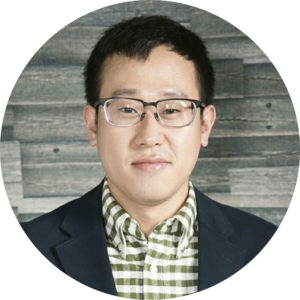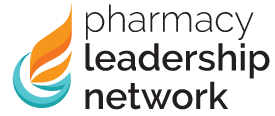 President & CEO
President & CEO
Advanced Pharmacy Solutions
Laguna Hills
I recently purchased a specialty pharmacy in December 2017 and was looking for ways improve how I manage employees and continue a culture of hard work, innovation, and a sense of family. At the time, I was a member of the CPHA Insurance Committee and CPHA-PAC and a close friend of the current President Vinson Lee, who mentioned LDI in passing. It didn’t stick then since I was busy dealing with a new business, but after being elected Chair-Elect for the Pharmacy Ownership Sig in March 2018, Katie Dahl, CPHA VP of Member Development, invited me to apply. Months after being thrust into a leadership role, I knew I was lacking so I jumped at this an opportunity to become a better boss.
LDI consisted of multiple all-day sessions in different locations across California, which tested my time management and scheduling abilities. There was some homework as well as post-session assignments, which was especially hard when running a pharmacy business, but I learned grit to work through it. Regardless of the effort, the sessions were filled with impactful insights relevant to my work life and career growth and even helped in relieving work stress by reflecting on new ideas and building on others.
One of the first and most impactful lessons was assessing my own inherent strengths to help build a good team. It helped identify my Clifton strengths of Achiever, Ideation, Learner, Input, and Self-Assurance and now I believe all managers in my organization should go through the same process of self-learning. Additionally during the LDI sessions, we were split up into small groups to open up and connect. This unwinding brought a sense of calm and belonging. After each session I continued to reflect on what my LDI project would be and how I could push the boundaries of pharmacy practice in California.
My ideas brought me back to Senate Bill 493, passed January 1, 2014. SB-493 was a landmark pharmacy bill in California which among other things, gave pharmacists the authority to administer drugs and biologics when ordered by a prescriber. This not only encompasses vaccinations but also long acting injectable drugs and more expensive specialty biologic drugs like monoclonal antibodies that are given subcutaneously or intramuscularly. The flu vaccine is the most common injection given in the community pharmacy but innovative retail practices have expanded their offerings to include other injectable medication classes previously given by nurses in clinics like long acting injectable antipsychotics (Invega Sustenna) and extended release medications to deter drug abuse (Vivitrol). Still, there remain other injectable drugs classes that are currently given in the doctors office which instead can be given by a pharmacist.
My LDI project is to develop an onsite injection clinic at my specialty pharmacy for Synagis (pavalizumab), a monoclonal antibody prescribed to prevent RSV (respiratory syncytial virus) in babies. The drug is administered by intramuscular route to the babies thigh. Syangis dosing would be re-verified by the pharmacist based on the babies weight to reduce injection error and the pharmacist would document the time of injection in the patient note. This new outpatient pharmacy service would reduce wait times and increase convenience for the patients and their family. Pharmacists can now apply to be providers with California Medicaid and bill for their services. LDI helped me be confident in our ability to contribute to the healthcare system as we continue to innovate pharmacy practice.

